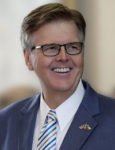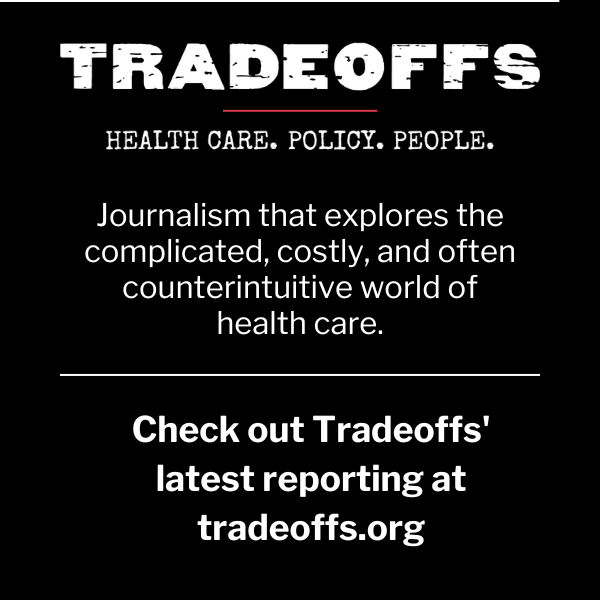
You may have heard the comments from Texas Lt. Governor Dan Patrick earlier this week, when he said that the elderly should be willing to die to help the economy. Fox personality Glenn Beck made similar statements, urging older people — basically anyone over 50 — to return to work even if it meant they might get sick and die. He included himself in this group too.
Outrageous? Of course. But it’s also a sign of the ageism that’s still pervasive in the U.S.
“Let’s be clear: prioritizing the economy over the ill, the old, and the disabled is a form of #eugenics,” tweeted journalist and author Ashton Applewhite.
It’s true that older people often have one or more underlying medical conditions which make them more susceptible to the virus. But, it is also true that younger people without known underlying conditions have also died from COVID-19. Sharon Begley of Stat News breaks down recent data from the CDC.
“There are people who have always valued the economy over human lives, particularly certain sorts of human lives. So, for them, it’s not as much of a leap as it would be for those of us who would always value human lives,” said Louise Aronson, M.D., a geriatrician and professor of medicine at the University of California San Francisco, in a phone interview. “They would counter that without a good economy, you’re doing human lives wrong. To which I would say, I believe they have skipped hundreds of intermediary steps in what is necessary for both the economy and humanity.”
According to Aronson, going to worst case, draconian ideas right off the bat shows a failure of creativity and compassion, as well as the basic spirit of innovation, which they claim to champion in their economic principles.
She recently penned this op-ed in The New York Times, asking “why are we OK with old people dying?” In it, she noted that “when we accept the second-class citizenship of an entire category of human being, we set a precedent for treating others with the same disregard.”
There is no moral argument that can justify sacrificing any group, the elderly, the disabled, or newborns, for the economy, according to Arthur Caplan, Ph.D., professor of medical ethics at New York University Langone Medical Center. “It’s shameful that it’s coming from groups that were screaming about death panels just four years ago as a criticism of Obamacare; utterly hypocritical and shameful.”
Yet, doctors in Italy have faced this moral dilemma for weeks now — do they give scarce resources like ventilators to the sickest patients, or to the ones with better chances of survival, who are usually younger? As The Daily Beast reported about this conundrum, “Age is not the only factor, but roughly speaking the older you are, the lower you are on the priority list.”
Given the shortage of ventilators in hard-hit areas of the U.S., doctors here may be next.
That’s just one of many reasons these comments, as well as some coming from President Trump, are so troubling to Aronson. “I think our moral job as human beings is to try not to end up in that situation, to do everything humanly possible. Because once you can kill off one segment of the population, you can kill off any of the others,” she said.
Even if a decision was somehow made to withhold care to the elderly or to sacrifice them as a risk to get everything going economically, it wouldn’t work, according to Caplan. Most of the world, including our trading partners, are still shut down and many governors won’t adhere to an “everybody out by Easter” policy, so economic engines in New York and California won’t be in play. The economy would be sputtering because families would fall apart, funeral homes would become overwhelmed and many people would still be fearful to come out.
Aronson said this is a good time to talk with your family — spouses, parents and adult children — about advance directives. “A lot of people would choose not to have that ventilator. But we’re never going to know that if we don’t talk to people about that.”
She pointed out that people don’t have to die gasping for air. There are well-known, evidence-based ways of medically supporting people through a medical crisis and ways to ensure comfort care if they don’t recover.
Are we the next Italy?
Italian doctors are now following guidelines from the Italian College of Anesthesia, Analgesia, Resuscitation and Intensive Care (SIAARTI) to help them prioritize who lives and who dies. Co-morbidities or underlying health conditions are factors which also now apply to non-COVID-19 patients who may need intensive care, according to this Atlantic story. It’s heartbreaking on so many levels.
“Some ER doctors are trained for disaster preparedness, and understand triage,” said Caplan. “ICU docs and nurses, on the other hand, are much less prepared for this. So I imagine we’ll be dealing with PTSD for many, many years.”
But it may be too late already, as this must-read New York Times story about one of New York City’s public hospitals, describes. Caplan predicted that by next week, we will be where Italy is now about making these choices, at least in New York, and perhaps in Los Angeles. “Then what happens is it ripples out to other parts of the country that stupidly did not start serious isolation and quarantine,” he said.
His advice for families that can’t see older loved ones right now? “Hang in there, be tough on the isolation. Think as a community, not just as an individual because the more you try to protect each other, the faster this thing will be over.”
Aronson may have summed up the quandary of age versus resources best in her op-ed: “When we look at people as nothing more than amalgams of age and diagnosis, we miss their humanity.”
Aronson offered a few story suggestions for journalists to consider:
- Are hospitals or health departments setting up parallel systems for people who have chronic conditions and/or whose health needs to be managed, but are not COVID-positive?”
- Is there any effort to encourage people to fill out living wills or health proxies in advance, in case the worst happens and they’re hospitalized with poor prognosis.
- How is this crisis showing up gaps in the health system?
- What is happening to the social safety net in their community? How are local organizations dealing with the increased need for food, and other social care services?







